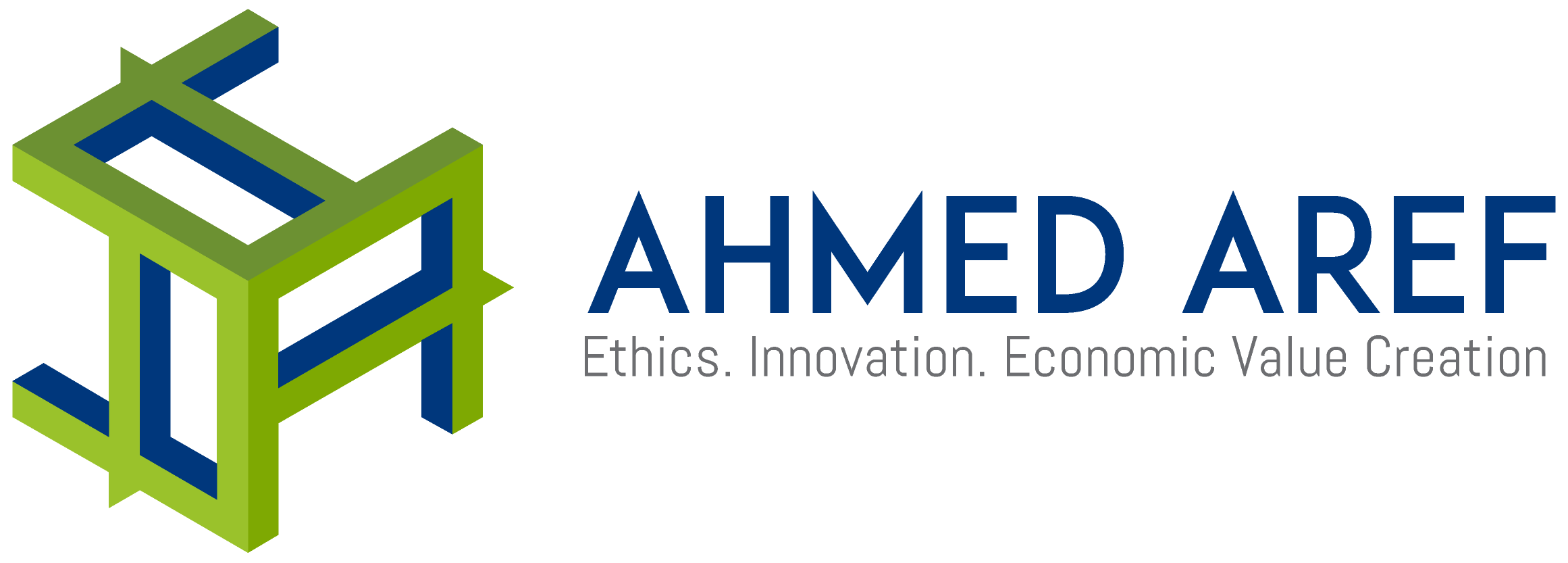
Cooperative Responsibility: A New Business Model
Welcome to My Blog
I’m Ahmed Aref. I have over 19 years of experience in strategic planning, financial management, benchmarking and business intelligence. My work with international and blue chip corporations has ranged from the Big 4 to oil, gas and telecom industries. I’ve had the opportunity to work with people of many nationalities from various industries. I wanted to share my thoughts and beliefs that all of us, whether employees, executives, members of for profit or non-profit, or even educational institutions, should strive to have a positive impact on our societies.
In my many years of experience, I realized the materialistic mentality is increasingly dominant in the business world, in terms of KPI setting, execution and the business model itself which seeks profit maximization. All our efforts are being directed toward pleasing our managers and achieving the targets! Some people call it greed, which could very well be an appropriate description as it’s a predominant human characteristic. Some people call it ambition and being competitive. But, is this the right mind-set to which we conform our values and beliefs?
In addition, I realized that the education system in all its stages reinforces the materialistic environment and competitiveness instead of cooperation. This keeps us away from our religious values and creates distance from our daily lives. I don’t believe this is right, and I’m sure that everyone has their own achievements which have benefited themselves or their entities, however, do these achievements have an impact outside the company walls? I’m speaking in terms of society.
In the corporate world, one positive thing that has evolved in the past twenty years is the concept of social responsibility beginning to emerge and develop from mere alm, to social participation. While this is a step in the right direction, it isn’t true social responsibility.
The term responsibility imposes an enforceable duty on all corporations and institutions towards society, not just participating in social festivals or going to schools and providing gifts to kids.
Responsibility should be translated into the business model of the entity, which should represent the management promise to all internal and external stakeholders, whilst achieving a satisfactory profit for the investors. The current practice of social responsibility is to have a department just like other departments, whilst the whole organization is achieving profit maximization for its investors.
Have your values and beliefs shaped your motives, behavior and work attitude? Or have they been affected by the materialistic corporate culture?
Do you feel satisfied with your current utilitarian lifestyle, working five days a week and enjoying yourself on the weekend? Or do you want to change this lifestyle to include responsible behavior in your work days which positively affect your family members, neighborhood, and childhood friends? Life shouldn’t only be about “me”. Wouldn’t you be more content if you changed life to be about “we”, for the ones we love and care for?
I believe there’s always a room for change and innovation. I believe it’s not over yet. You can have your final say, and work with others to achieve it today.
You can do it, because you can be an influencer!
You are an influencer!
It’s simpler than you’d imagine.
Take this story for example; A man was sitting under a tree when an apple fell on him. Why is this important? Because this apple made the man think differently. He wondered why it fell on him rather than simply eating the apple as most people would. This man is Isaac Newton. He didn’t selfishly eat the apple. He thought about the incident in a different way and began to experiment, and thus we have Newton’s Theory of Gravity. Because of this thought process he became the great Newton.
You need to alter your perceptions from “me” to the “we” in everything you do. Let me give you an out of context example of the famous game, musical chairs.
I’m certain everyone has enjoyed this game at some point during their elementary school years and experienced the thrill and joy of finding their chair. This type of game teaches greed and self-interest and enforces winning at the expense of others.
There is another version of musical chairs in the corporate world, let’s call it “cooperative musical chairs”, where everyone plays but nobody loses or is “out”. Chairs are still removed when the music stops. Everyone still needs to find a place to sit, and the rounds continue until the whole team can no longer sit on the chairs. Then we start over from the beginning!
I believe the above analogies help clarify the goals of “Corporate CPR”, which aim to first achieve a mindset shift toward a state of “Individualism of Intellect”. To be more specific, we should rethink the education model, banking sector, and corporate business models and purposes.
Please check back for our next discussion on the importance of morals as pillar of Corporate CPR!
I look forward to seeing you again. Until that time, I wish you all the joy and happiness for the right reasons.
